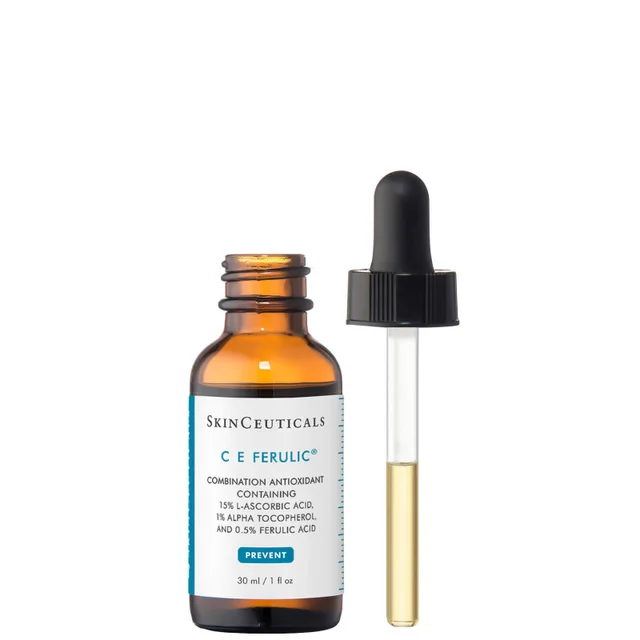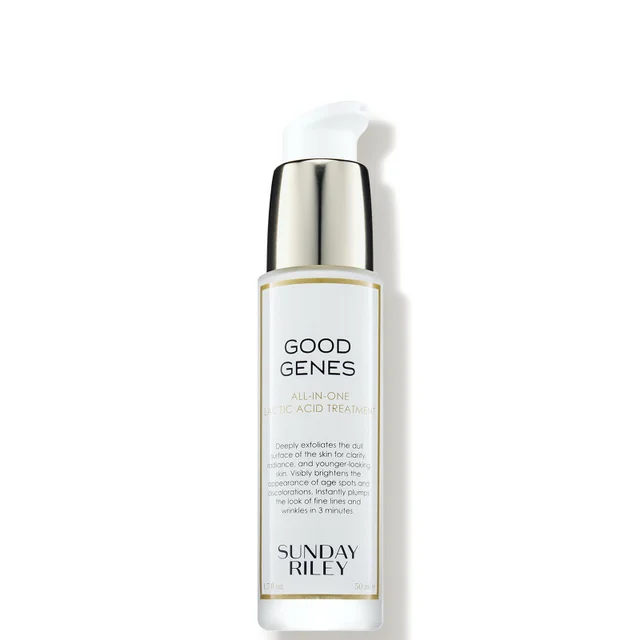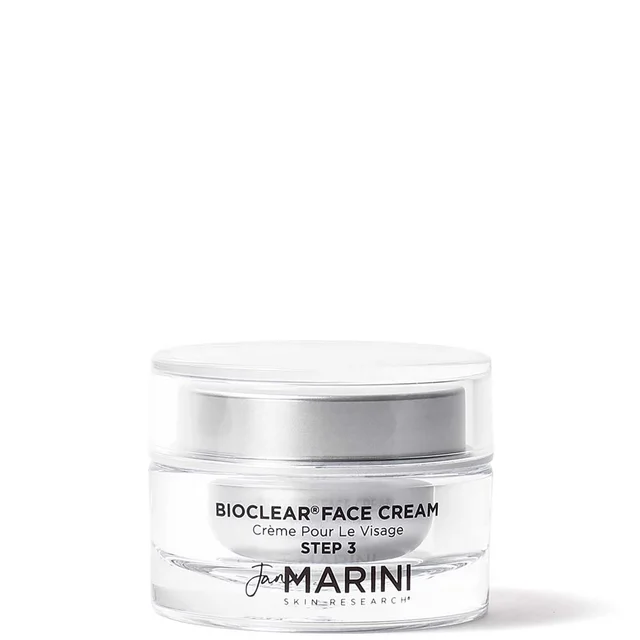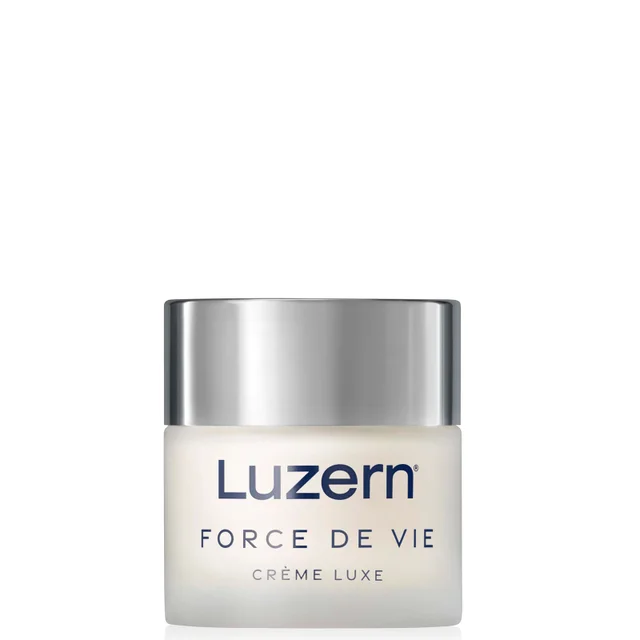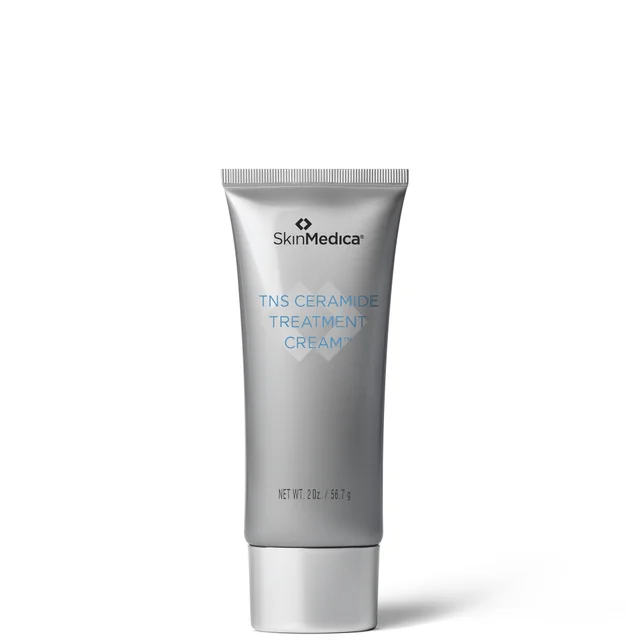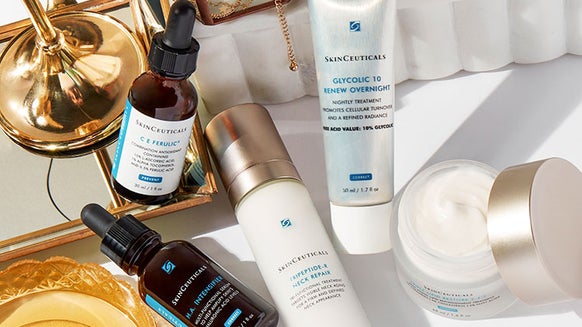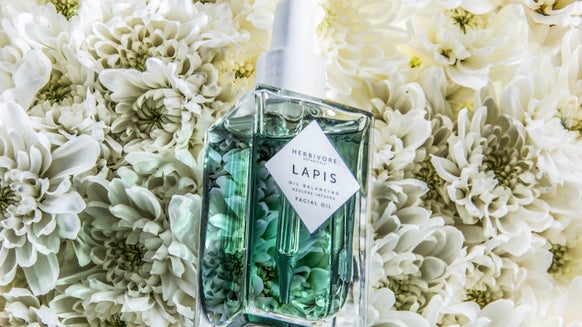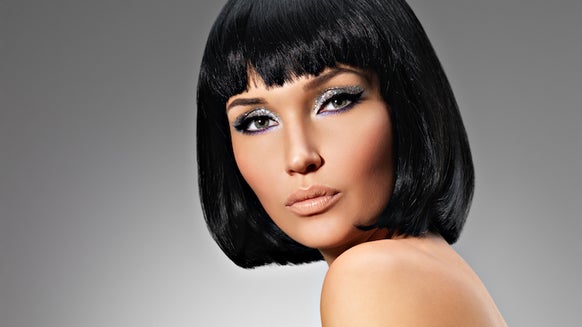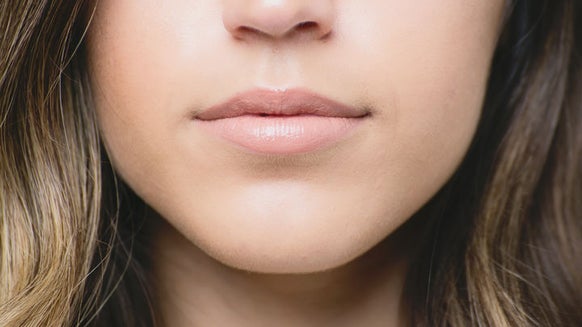What Anti-Aging Ingredients Are Best for You? We Asked the Experts
With as many different skin care products on the market as there are, it can be difficult to navigate the beauty aisle with confidence. There are so many anti-aging ingredients—some of which are just as hard to pronounce (e.g. hyaluronic acid) as they are to decipher—that it’s hard to know which ones are right for your skin type. We asked dermatologists, skin care educators and estheticians to help us understand how 20 of the most popular ingredients in skin care products help prevent aging skin.
1. Alpha-Lipoic Acid
Alpha-lipoic acid helps to prevent the signs of aging in the skin while soothing it at the same time.“Also known as thioctic acid, alpha-lipoic acid improves cellular energy production and reduces inflammation, a major cause of aging,” according to Lisamarie Gargulio, Director of Education at Luzern Laboratories. “It also provides your skin with superior antioxidant protection, further activating antioxidants such as coenzyme Q10.”
2. Biotin
“Vitamin H, more commonly known as biotin, is part of the B-complex group of vitamins,” according to a study at the University of Maryland Medical Center
3. Caffeine
4. Ceramides
5. Coenzyme Q10
6. Glycolic Acid
Glycolic acid, a popular chemical exfoliant, is a derivative of sugarcane and is found naturally in foods. It’s been known to boost the production of collagen and elastin in the body, reducing the signs of aging in the skin. “It is an alpha hydroxy acid that’s used as an exfoliator to remove dead skin cells and smoothes skin texture,” says Gargulio. “Glycolic acid can reduce the look of fine lines and aging.”
7. Green Tea
“Green tea has antioxidant and anti-inflammatory properties. The anti-aging benefits of green tea are attributed to polyphenols, a type of flavonoids found in plants,” says Dr. Harold Lancer
8. Hyaluronic Acid
9. Hydroquinone
Hydroquinone is a lightening agent for skin that’s widely used for its fast results.“Monitored use of hydroquinone quickly lightens tough age spots on the skin,” according to skin care therapist Paula Mauter. “Hydroquinone is especially helpful for discoloration related to a disorder called melasma caused by hormone fluctuations leftover from pregnancy or birth control use.”
10. Jojoba Oil
Jojoba oil is a vegetable wax extracted from jojoba plants in the desert. It’s rich in vitamin E, zinc and B-complex vitamins to help sensitive skin fight the signs of aging. According to skin care expert Zondra Wilson, jojoba oil can “control acne when used regularly, help lighten dark circles underneath the eye and help minimize puffiness under the eye.”
11. Kojic Acid
12. Lactic Acid
13. Malic Acid
Malic acid is an alpha-hydroxy acid naturally found in the body that can boost the immune system and balance pH levels in the body. “Malic acid is excellent to improve the appearance of fine lines, large pores and improve the overall texture of skin,” says Mauter. “Malic acid, usually derived from apples, is glycolic acid's gentle cousin—so it's a better choice for sensitive skin types.”
14. Niacinamide
Niacinamide (aka vitamin B3) can help the body perform critical functions, like cell signaling, DNA signaling and converting carbohydrates into fats and proteins. “This vitamin B3 derivative suppresses melanin from reaching the surface of the skin, thus lightening areas of dark spots that plague mature skin,” says Mauter. “Niacinamide is a more 'natural' way of dealing with hyperpigmentation compared to something like hydroquinone.”
15. Plant Stem Cells
Plant stem cells work by replacing, instead of repairing, damaged cells in the skin. “Plant stem cells have the ability to divide and self-renew. This newer technology has a wide range of uses, from increasing collagen production to reducing inflammation,” says Mauter.
16. Resveratrol
17. Retinol
18. Vitamin C
19. Vitamin E
20. Vitamin K
Vitamin K can help to reverse the appearance of aging in skin because of its role in blood circulation, making it perfect for under-eye creams. “Vitamin K reverses the calcium that is deposited in your skin’s elastin fibers, which harden and lead to wrinkles,” according to Dr. Braverman.
Where Do You Go From Here?
Okay, so you know what ingredients to look for, but does that mean you need to be using all of them, every day? Not necessarily. Though, it could be possible, as many anti-aging products contain many of these ingredients. Instead, we recommend creating a skin care regimen tailored to your skin type, age and skin concerns. For example, skin care experts agree that every anti-aging routine should contain sunscreen, antioxidants and a cleanser.
Once you've got the basics covered, you might want to add in additional serums, treatments and exfoliants. Some of the ingredients above are designed to target specific concerns (e.g. hydroquinone for dark spots), while others are more universally recommended (e.g. vitamin C for environmental protection). And some are ideal for treating more advanced signs of aging, while others fall under preventative care.
Check out our tips for starting a new skin care regimen.

From the latest hair and makeup trends to the best solutions for your skin issues, we've got all your beauty concerns covered!
